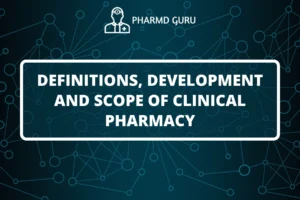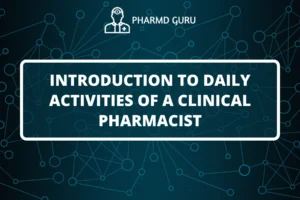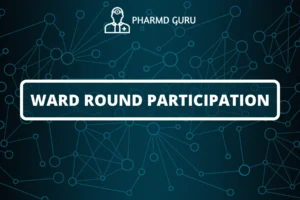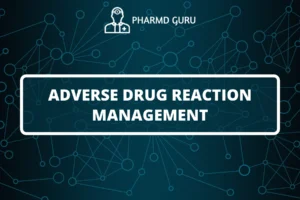Access to accurate and reliable drug information is crucial in healthcare settings to ensure safe and effective medication use. Clinical pharmacists play a pivotal role in providing drug information and poisons information services, supporting healthcare professionals and patients in making informed decisions regarding medications and managing poison-related emergencies. In this article, we will explore the importance of drug information and poisons information and the role of clinical pharmacists in these essential services.
SCROLL DOWN TO THE BOTTOM OF THE PAGE FOR ACTUAL NOTES
TABLE OF CONTENTS:
- Introduction
- Drug Information Services
- Importance of Drug Information
- Sources of Drug Information
- Role of Clinical Pharmacists in Drug Information
- Poisons Information Services
- Managing Poison-related Emergencies
- Role of Clinical Pharmacists in Poisons Information
- Collaboration and Communication
1. Introduction
Drug information and poisons information services are vital components of healthcare. They provide healthcare professionals and the general public with access to accurate, evidence-based information on medications and poison-related emergencies, ensuring optimal patient care and safety.
2. Drug Information Services
Drug information services aim to provide comprehensive and up-to-date information on medications. They cover various aspects, including drug indications, dosages, adverse effects, drug interactions, precautions, and therapeutic alternatives. These services support healthcare professionals in making informed decisions regarding medication therapy.
3. Importance of Drug Information
Accurate drug information is essential in ensuring safe and effective medication use. It helps healthcare professionals in selecting appropriate medications, understanding potential risks and benefits, avoiding medication errors, and optimizing therapeutic outcomes. Patients also benefit from drug information, as they can make informed decisions and actively participate in their own healthcare.
4. Sources of Drug Information
There are several sources of drug information available to healthcare professionals and patients. These include reputable online databases, drug compendia, scientific literature, clinical practice guidelines, and drug package inserts. Clinical pharmacists utilize these sources to gather accurate and evidence-based drug information.
5. Role of Clinical Pharmacists in Drug Information
Clinical pharmacists are experts in medication management and play a critical role in providing drug information services. They have in-depth knowledge of pharmacology, pharmacokinetics, and drug interactions, enabling them to analyze and interpret complex drug information. Clinical pharmacists serve as valuable resources, answering drug-related queries, providing evidence-based recommendations, and promoting safe and rational medication use.
6. Poisons Information Services
Poisons information services focus on managing poison-related emergencies. They provide immediate assistance in cases of accidental ingestion, exposure, or overdose of medications, household chemicals, or other toxic substances. Poisons information services aim to prevent further harm, guide initial management, and facilitate appropriate medical treatment.
7. Managing Poison-related Emergencies
In poison-related emergencies, quick access to accurate information is crucial. Poisons information services provide guidance on initial first aid measures, risk assessment, potential toxicity, and appropriate management strategies. Timely intervention can significantly impact patient outcomes and prevent long-term complications.
8. Role of Clinical Pharmacists in Poisons Information
Clinical pharmacists play an essential role in poisons information services. They possess specialized knowledge of toxicology, antidotes, and management strategies for poison-related emergencies. Clinical pharmacists collaborate with poison control centers, healthcare teams, and emergency responders to provide expert advice, assist in risk assessment, and guide appropriate treatment interventions.
9. Collaboration and Communication
Effective collaboration and communication are essential in drug information and poisons information services. Clinical pharmacists work closely with healthcare professionals, poison control centers, emergency departments, and regulatory agencies to ensure timely and accurate information dissemination. This collaborative approach promotes patient safety and enhances healthcare outcomes.
ACTUAL NOTES




